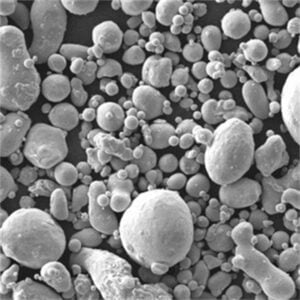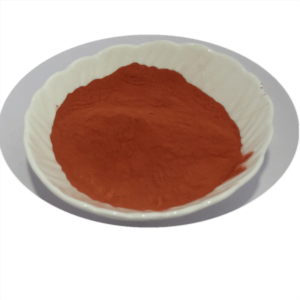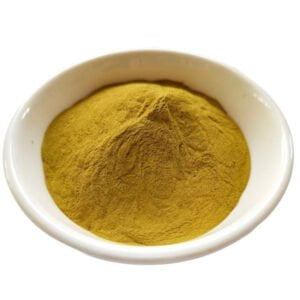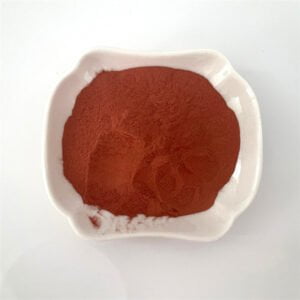The world of 3D printing has revolutionized manufacturing, allowing us to create complex objects directly from digital designs. But what about the building blocks that bring these designs to life? In this realm, cobalt chromium alloy 3D printed metal powder emerges as a true powerhouse material, offering a unique blend of strength, durability, and biocompatibility.
Advantages of cobalt chromium alloy 3D printed metal powder
Imagine a metal powder so fine it resembles dust, yet capable of transforming into incredibly robust objects. That’s the magic of cobalt chromium alloy 3D printed metal powder. This material boasts a remarkable set of advantages that have propelled it to the forefront of additive manufacturing:
- Unmatched Strength and Durability: At the heart of cobalt chromium’s prowess lies its exceptional strength. Compared to traditional materials like plastics or even some aluminum alloys, cobalt chromium offers significantly higher tensile strength and fatigue resistance. This translates to parts that can withstand immense pressure, making them ideal for applications like aerospace components and demanding industrial machinery. Think of it this way: if a plastic part in an airplane engine might buckle under intense stress, a cobalt chromium component, thanks to its superior strength, would hold firm, ensuring the engine’s smooth operation.
- Corrosion Resistance Built to Last: Imagine a metal implant in the human body that seamlessly integrates and resists corrosion over time. That’s the beauty of cobalt chromium. It exhibits exceptional resistance to corrosion, even in harsh environments. This characteristic makes it a perfect choice for medical implants like hip replacements and dental crowns, where long-term functionality and biocompatibility are paramount. Here’s an analogy: Just like a high-quality stainless steel pot maintains its shine for years, cobalt chromium implants resist wear and tear within the body, ensuring their longevity and functionality.
- Biocompatible for Seamless Integration: Speaking of medical applications, cobalt chromium’s biocompatibility is another significant advantage. This material exhibits minimal interaction with the human body, reducing the risk of rejection or allergic reactions. This biocompatibility makes it a trusted material for various medical implants, allowing them to integrate seamlessly with the body’s tissues. Imagine a puzzle piece that perfectly fits into place. That’s how a cobalt chromium implant interacts with the body’s bone structure, offering a natural feel and promoting long-term healing.
- Unlocking Design Freedom with Complex Geometries: 3D printing, by its very nature, allows for the creation of intricate and complex geometries that would be difficult, if not impossible, with traditional manufacturing methods. Cobalt chromium alloy powder, specifically designed for 3D printing processes, further enhances this design freedom. The fine particles enable the creation of highly detailed features and intricate shapes, pushing the boundaries of what’s possible. Think of it as sculpting with metal on a microscopic level. This design freedom allows engineers to create parts with optimized weight distribution and internal structures, leading to lighter and more efficient designs.
These are just some of the key advantages that make cobalt chromium alloy 3D printed metal powder a game-changer in various industries.

Applications of Cobalt Chromium Alloy 3D Printed Metal Powder
The exceptional properties of cobalt chromium alloy 3D printed metal powder have opened doors to a wide range of applications across various sectors. Let’s delve into some of the most prominent areas where this material shines:
- Aerospace and Defense: In the high-flying world of aerospace, weight reduction is crucial for maximizing fuel efficiency and performance. Cobalt chromium’s strength-to-weight ratio makes it an ideal choice for lightweight yet robust components like jet engine parts, landing gear components, and even spacecraft structures. Additionally, its resistance to extreme temperatures makes it suitable for applications exposed to the harsh thermal environments encountered in aerospace.
- Medical Implants: As mentioned earlier, cobalt chromium’s biocompatibility and corrosion resistance make it a frontrunner in medical implant technology. From hip and knee replacements to dental implants and spinal fixation devices, this material offers a reliable and long-lasting solution for patients requiring surgical intervention.
- Industrial Applications: The demanding world of industrial machinery necessitates components that can withstand wear and tear. Cobalt chromium’s exceptional strength and resistance to corrosion make it a valuable asset for manufacturing processes involving high pressure, friction, or harsh chemicals. Think of gears, bearings, and cutting tools – these are just some examples of industrial components that can benefit from the resilience of cobalt chromium alloy 3D printed metal powder.
- Luxury Goods and Jewelry: Beyond its functional applications, cobalt chromium’s unique aesthetics have also found a niche in the world of luxury goods and jewelry.
- Material Composition: The specific composition of the cobalt chromium alloy can influence the price. Alloys with additional elements like tungsten or molybdenum might offer enhanced properties but come at a premium compared to basic cobalt chromium blends.
- Particle Size and Morphology: The size and shape of the metal powder particles play a crucial role. Finer particles generally require more complex manufacturing processes, leading to a higher cost. Similarly, powders with specific morphologies (shapes) designed for optimal flow and packing characteristics might command a price increase.
- Manufacturer and Brand Reputation: The reputation of the manufacturer and the brand associated with the powder can influence the price. Established brands with a proven track record of quality and consistency might charge a premium compared to lesser-known manufacturers.
- Market Demand and Supply: The overall market demand and supply of cobalt chromium alloy 3D printed metal powder also affect the price. Fluctuations in raw material costs and production capacity can cause price variations.
Here’s a ballpark range to consider: The price of cobalt chromium alloy 3D printed metal powder can range from around $100 to $500 per kilogram. However, this is just a starting point, and the actual cost can be higher or lower depending on the factors mentioned above.
When considering the price, it’s important to remember that cobalt chromium offers a unique combination of properties – strength, durability, biocompatibility, and design freedom. These attributes often translate into long-lasting, high-performance parts, potentially offsetting the initial material cost by extending the lifespan and functionality of the final product.
Considering the Alternatives: A Comparative Analysis
While cobalt chromium alloy 3D printed metal powder reigns supreme in many applications, it’s essential to acknowledge some potential alternatives:
- Stainless Steel: A widely used metal known for its affordability and corrosion resistance. However, stainless steel generally offers lower strength compared to cobalt chromium, making it less suitable for high-stress applications.
- Titanium Alloys: These lightweight metals boast excellent strength-to-weight ratios and biocompatibility. However, titanium alloys can be significantly more expensive than cobalt chromium and often require specialized printing processes.
- Nickel Chrome Alloys: Another option exhibiting good corrosion resistance and wear properties. However, nickel can trigger allergic reactions in some individuals, limiting its use in medical applications. Additionally, nickel chrome alloys might not possess the same level of strength as cobalt chromium.
The best choice for your specific project depends on the required properties, budget constraints, and desired application. When making your decision, consider the following factors:
- Strength and Durability: How much stress will the final part experience?
- Weight Considerations: Is a lightweight solution crucial?
- Biocompatibility: Will the part come into contact with human tissue?
- Corrosion Resistance: What kind of environment will the part operate in?
- Budget: What is the allocated budget for the material?
By carefully weighing these factors and comparing cobalt chromium with potential alternatives, you can make an informed decision that best suits your project needs.

FAQ
| Question | Answer |
|---|---|
| What are some of the limitations of cobalt chromium alloy 3D printed metal powder? | While incredibly strong, cobalt chromium can be brittle compared to some other metals. Additionally, the printing process itself can introduce slight imperfections within the material, potentially impacting its overall strength. However, advancements in 3D printing technology are continuously improving these aspects. |
| Is cobalt chromium safe for medical implants? | Generally yes. Extensive research and clinical use have established cobalt chromium as a biocompatible material for various medical implants. However, as with any medical |
| Are there any health considerations with cobalt chromium implants? | Potential for Metal Ion Release: Over time, there is a slight possibility of metal ions leaching from cobalt chromium implants into the surrounding tissues. While the long-term effects of this are still under investigation, some studies have suggested a potential link between metal ion release and certain health complications. However, it’s crucial to remember that these studies involve long-term exposure, and advancements in implant design and surface treatments are continuously being made to minimize this risk. Allergic Reactions: Although rare, some individuals might exhibit allergic reactions to cobalt chromium. Pre-operative allergy testing is recommended before implantation to minimize any potential complications. |
| Safety During 3D Printing and Machining | The 3D printing process using cobalt chromium powder can generate airborne particles. Proper ventilation and safety equipment are essential to protect workers from inhaling these particles. Similarly, machining finished parts made from cobalt chromium requires precautions to minimize dust exposure. |


















